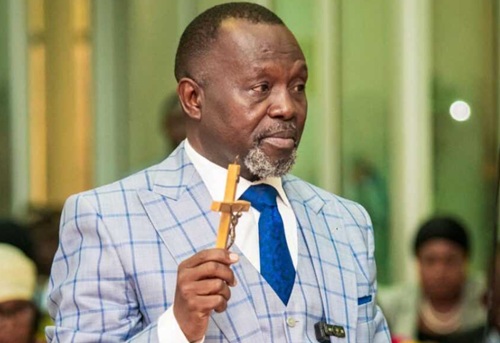The Attorney-General’s Office has formally entered a nolle prosequi in the case of The Republic v. Kwabena Duffour & 7 Others, effectively ending the criminal prosecution of the former Finance Minister and his co-accused.
The decision, announced in a press release signed by Deputy Attorney-General Dr. Justice Srem-Sai on Tuesday, July 22, brings to a close one of the most high-profile cases arising from Ghana’s financial sector clean-up launched in 2018.
Dr. Kwabena Duffour, founder of the now-defunct uniBank, along with seven other individuals, faced charges of financial impropriety, mismanagement, and causing significant financial loss to the State. The charges were initially filed in 2020, following investigations into the collapse of several financial institutions during the Bank of Ghana-led reform exercise.
According to the Attorney-General’s Office, the decision to discontinue prosecution is rooted in the State’s success in partially recovering funds lost due to the alleged misconduct.
“In pursuit of this objective, the Office of the Attorney-General, in collaboration with other relevant State agencies, established a threshold of 60% recovery of the alleged losses to the State as a condition for reconsidering prosecution in specific cases,” the statement read.
“Following prolonged negotiations and engagements, the accused persons in The Republic v. Kwabena Duffour & 7 Others case have met this recovery threshold.”
The Attorney-General concluded that further prosecution would not yield any significant additional benefit to the State and that the substantial recoveries made so far aligned with the broader public interest of protecting the national purse.
Dr. Srem-Sai was quick to clarify that the withdrawal of charges does not equate to an exoneration of the accused persons.
“This decision, however, does not imply an absence of wrongdoing nor a vindication of any conduct,” he stated. “It is a pragmatic step in line with the overarching national interest of recovering State resources.”
He added that the Attorney-General remains “resolute in his commitment to upholding the rule of law, protecting the public purse, and pursuing justice in all matters of national importance.”
The announcement has sparked mixed reactions from legal experts, political analysts, and civil society. While some commend the focus on financial recovery, others—like legal scholar Prof. Kwaku Asare and policy analyst Michael Kosi Dedey—have raised concerns about transparency, deterrence, and the potential for setting a precedent where public officials can avoid prosecution by refunding a portion of misappropriated funds.
Critics argue that without convictions, justice may appear negotiable, especially for the politically connected, potentially undermining anti-corruption efforts and public trust in the justice system.

